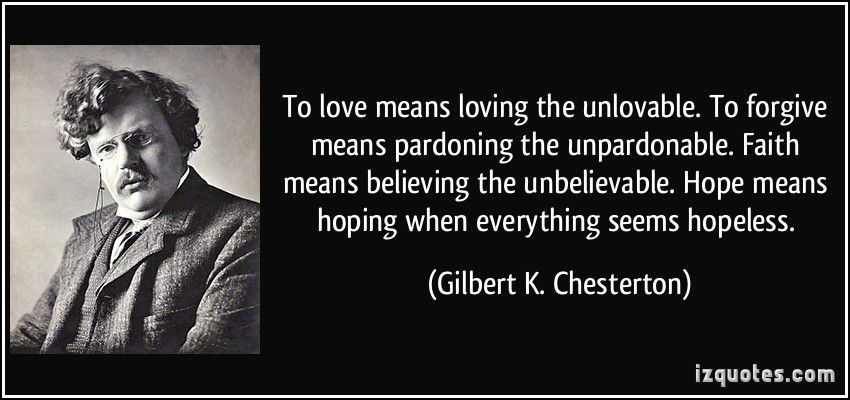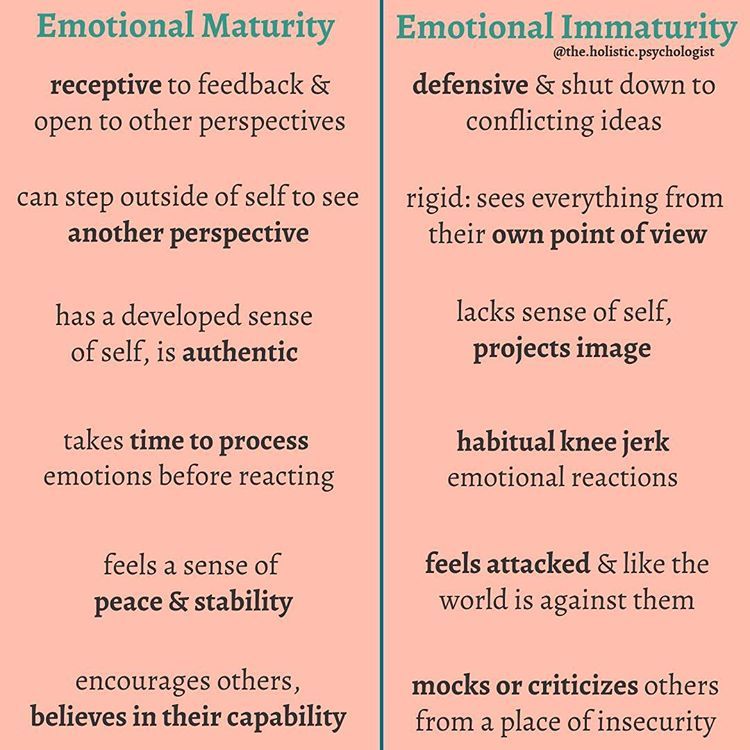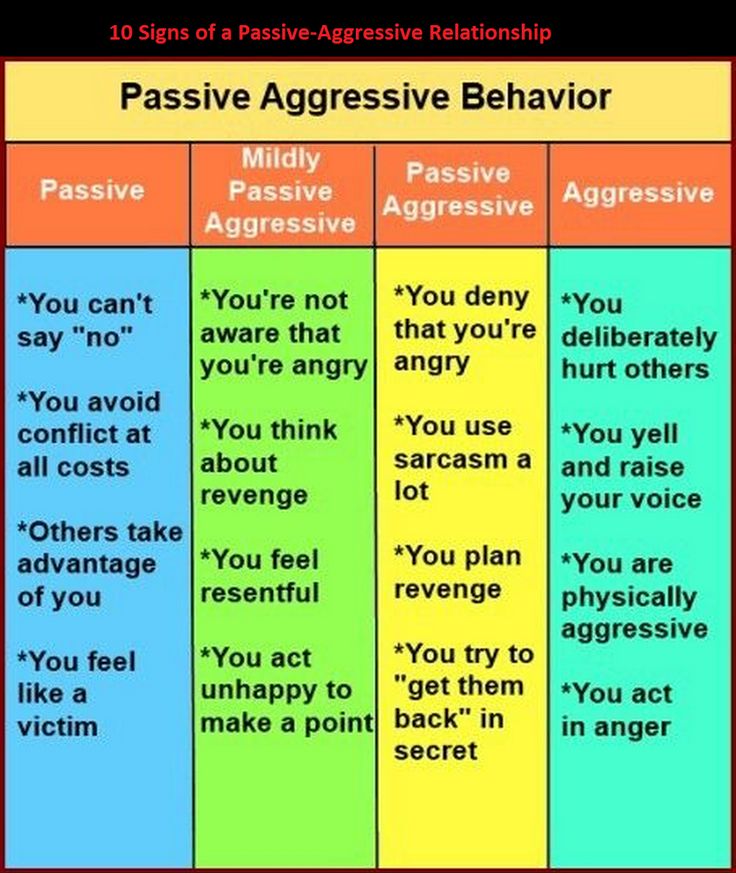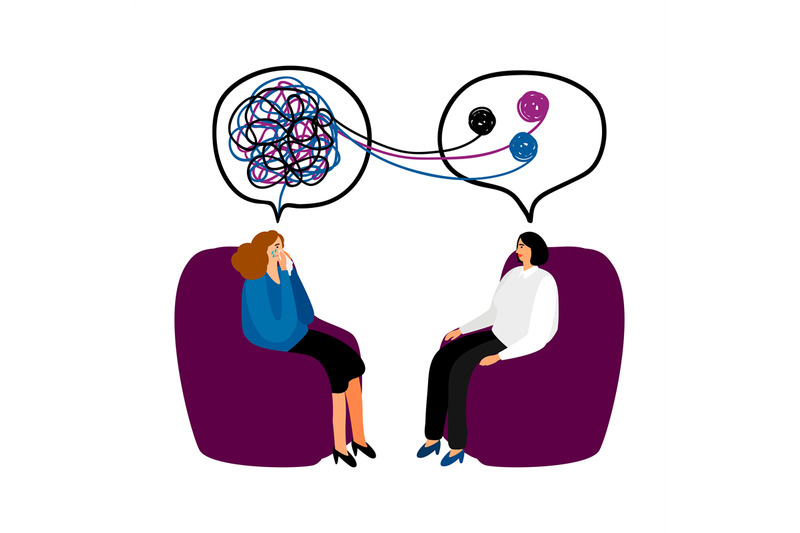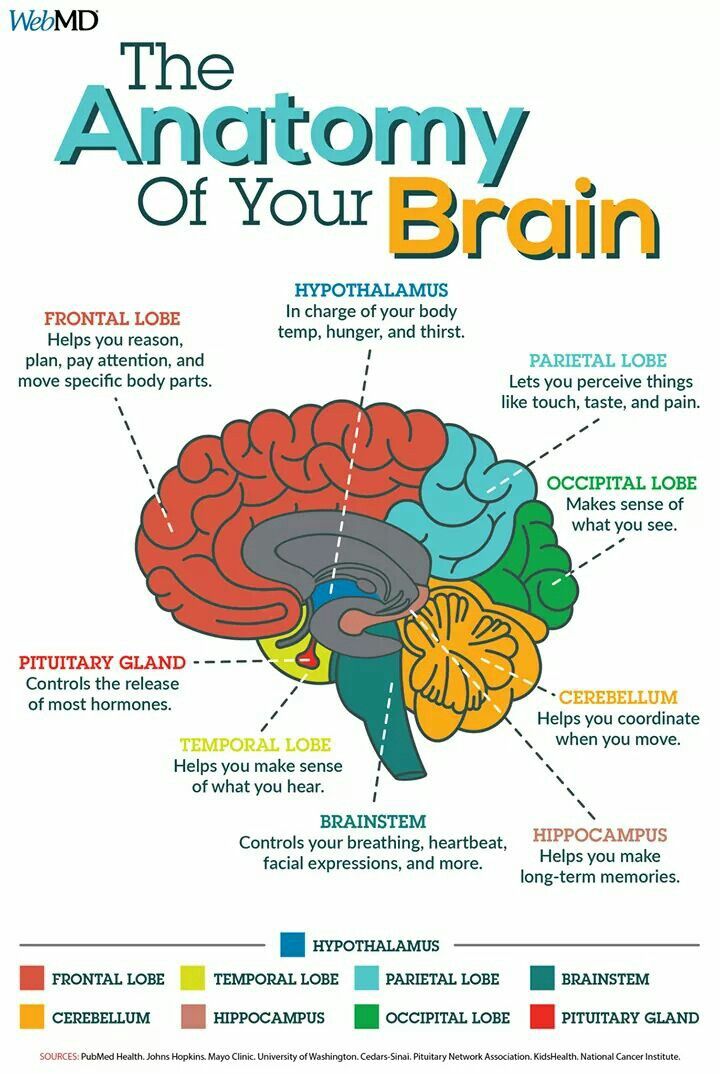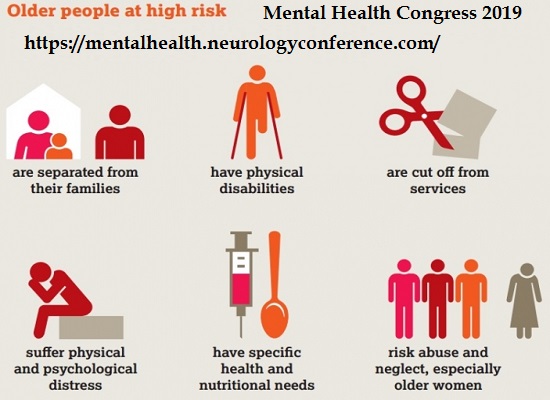How to keep going when life seems hopeless
4 Things to Remember When Life Feels Hopeless
“However long the night, the dawn will break.” ~African Proverb
Were there times in your life where it felt anything that could go wrong went wrong? That was me five years ago.
In a span of nine months, my marriage to a partner of eight years broke down, I lost four family members to unexpected deaths, and I suddenly found myself hurtled from living the dream life to being jobless, penniless, and homeless.
To say life knocked the wind out of me would be an understatement.
Each time I picked myself up, another blow would send me sprawling toward a sense of utter defeat. It was as if a tornado swept through my entire being and left me empty and devoid of hope, strength, and any ounce of self-belief.
Shell-shocked, I spent that whole year crying. I would wake up crying in the mornings, run to cry in public toilets during the day, and end my days crying myself to sleep. It was a dark period of my life where everything was one blurry haze of tears.
As those days of hopelessness stretched on, the only thing I could focus on was taking baby steps every day to build a new life and a new future.
It was an arduous journey where I was often taking one step forward and two steps backward. Many times, I felt like I would never see the light at the end of the tunnel, and I struggled to find the strength to inch forward.
Five years on, I finally came out the other side. My new life and the new me are still under construction, but I now have in me a spring of strength to propel me forward, regardless of setbacks or how grim a situation seems.
This newfound capacity did not develop overnight. It grew gradually as I practiced and incorporated into my life the valuable insights below.
If you’re going through difficult times now, the following four reminders may help you be more resilient.
1. Remember that life always changes. Things can get better.
When troubles strike, it can feel like things will only get worse, but that is the pessimist in us talking. If we keep the faith and respond to the situation with positive and constructive actions, we can break out of the cycle and things can get better.
If we keep the faith and respond to the situation with positive and constructive actions, we can break out of the cycle and things can get better.
Sometimes all we need to do is to simply let time pass and to resist the temptation to overreact and aggravate the problem. During times like these, I would distract myself by actively engaging in other areas of my life.
2. Recall how you overcame similar struggles in the past.
When plodding through a challenging time, it’s natural to be gripped by fear, self-doubt, and pessimistic thoughts that we won’t be able to surmount the obstacles. We forget that it always feels impossible until it’s done, and that we have overcome similar struggles in the past.
A simple but extremely effective thing I did was to list down the occasions in my life where I busted through hurdles and rose above the seemingly insurmountable difficulties. As I penned out the victories, I found renewed faith in myself and in the unknown future, which may well bring the good instead of the bad like I feared.
3. Remember that things aren’t as bad as they seem.
Zoom out on the issue and focus on the grand scheme of things. More often than not, the raging fires in our lives hijack our attention and we fail to see the big picture. It’s rarely the case that every aspect of our lives went awry at the same time, and it’s critical to keep the right perspective when the going gets tough.
We need to remember that our problems are merely a subset of everything that’s going on in our lives and not let the worries, fear, and anxiety overtake our minds. Even if every area of our lives—namely health, relationship, work, money, and passion—went haywire, the fact that we’re alive means there’s hope for things to turn around.
4. Remember that there are still things to appreciate.
Do not let the darkness blind you from seeing the stars. It’s human nature to get caught up with the things that are not working out in our lives and forget the good bits. I’m a big believer of a grateful heart being a magnet for abundance and miracles.
No matter how terrible life may seem at any single point, there are always good things if we keep our eyes peeled for them.
Thanks to the challenges, I came to see who my true friends were, and I also learned to appreciate many of the blessings I had taken for granted. I might have lost a life partner, loved ones, money, and employment, but these setbacks are transient.
I would always have my degree, knowledge, skills, professional experience and network, and people who care deeply for me to fall back on and to get me back on my feet.
As I grew stronger in handling life’s curveballs, I was grateful that I had developed this invaluable life skill at a young age so I can have the rest of my life to benefit from it. While maintaining a thankful heart, I realized that even in dark times there are stars we can gaze upon if we view our plight through the right lens.
Which areas of your life are you struggling with right now? How do you cope and stay resilient?
About Sylvia Huang
Sylvia Huang is a blogger on life ideas that make everyday feel good. She writes about habits and productivity, health and wellness, emotional intelligence, and money matters. Her inspiration comes from her experiences living in Japan, France, Australia, Singapore, and Malaysia, working in the fund management industry and travels in over twenty-five countries. Read her other articles on her website, OhSunnyMornings.com.
She writes about habits and productivity, health and wellness, emotional intelligence, and money matters. Her inspiration comes from her experiences living in Japan, France, Australia, Singapore, and Malaysia, working in the fund management industry and travels in over twenty-five countries. Read her other articles on her website, OhSunnyMornings.com.
See a typo or inaccuracy? Please contact us so we can fix it!
How to Stop Feeling Hopeless
Skip to content
If you have gone through a big loss or overwhelming life change, or if you are living with a mental health condition such as depression, it is common to feel like the situation is hopeless and will never improve. Hopelessness is a feeling of despair or lack of hope that life can feel better than it does. These feelings may make you pull back from your life and avoid doing things you usually enjoy or being with people you love. If hopelessness becomes severe, it can lead to suicidal thoughts.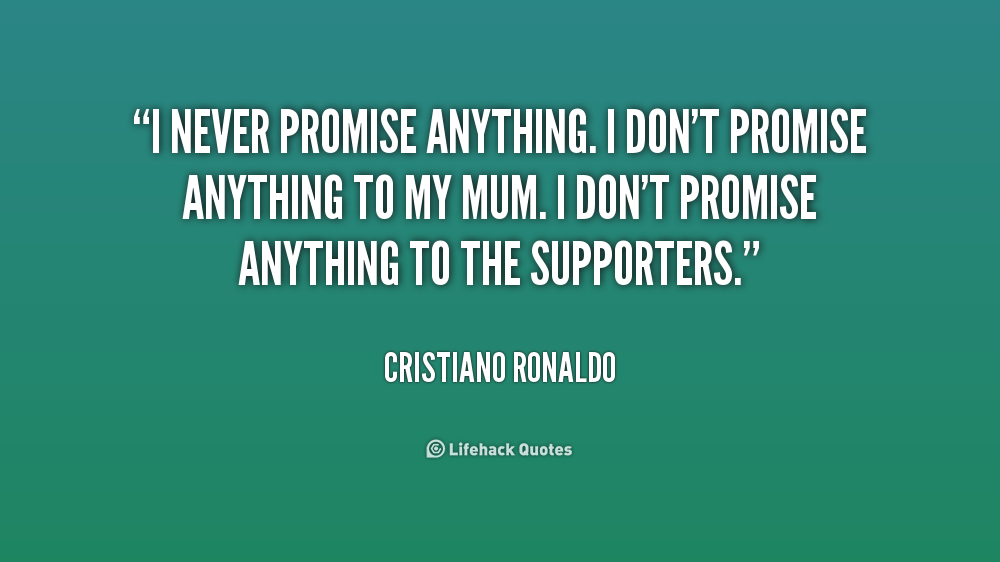
If you’ve been struggling with feeling hopelessness and it’s not improving—or it’s getting worse—it may be time to reach out to a counselor or therapist who can help you find the root of the issue and work through it with you. If you are having thoughts of suicide or self-harm, it is time to reach out for help.
Learn how you can find good, affordable mental health care.
If you need help right now:
- Text HOME to 741-741 for a free, confidential conversation with a trained counselor any time of day.
- Text or call 988 or use the chat function at 988lifeline.org.
- If this is a medical emergency or there is immediate danger of harm, call 911 and explain that you need support for a mental health crisis.
Why We Need Hope
We all experience loss, difficult times, or mental health challenges during our lives, and hope is what helps us get through those moments. We need hope, because it helps us tap into the positive belief that even when things are out of our control they can get better. It’s an essential part of our well-being.
We need hope, because it helps us tap into the positive belief that even when things are out of our control they can get better. It’s an essential part of our well-being.
It’s important to pay attention if you start feeling hopeless, reach out for support, and make changes to help you find—or reconnect with—hope.
How to Feel Less Hopeless
We can’t always avoid situations that can make us feel hopeless, such as the death of a loved one, the loss of a job, or financial stress. We can, however, work on how we react to stressors. Below are some helpful ways to deal with feelings of hopelessness when you’re faced with a difficult event or situation.
Reframe Hopeless Thoughts
A common thing that happens when you feel hopeless is catastrophizing, or imagining a worst-case scenario. Catastrophizing may cause you to overestimate how bad a situation is or believe that a difficult situation is permanent.
This mindset can reinforce feelings of hopelessness, so one of the most powerful ways to deal with it is to learn to reframe hopeless thoughts.
That can look like:
- Accepting that what you’ve gone through can’t be undone, but the difficult feelings—such as deep sadness, shame, or grief—that come with it will lessen over time. Learning how to be gentle with yourself while it is intense can make a big difference.
- Understanding that, no matter how unfair or devastating this loss or change was, the future holds many more kind, soft, and happy moments than you can see right now—and it is better to be here for that future than not.
- Finding and focusing on the positives in life does not mean you have to forget or invalidate the struggles you’ve experienced; it means you do not have to suffer quite so acutely.
Let’s say you receive a rejection from the college of your choice. If your mind immediately goes to the worst-case scenario, you may start to believe you will never get into a good college and never be successful in your career.
If you are open to other ways of framing it, you may allow yourself to imagine other options that include all the new experiences, people, and opportunities ahead of you. You may, for example, end up taking a gap year and having totally new experiences as a result. It is helpful to keep in mind that there are many routes to accomplishing your goals.
You may, for example, end up taking a gap year and having totally new experiences as a result. It is helpful to keep in mind that there are many routes to accomplishing your goals.
Practice Positive Coping Strategies
Hopelessness can leave you feeling numb or empty, and it may be tempting to distract yourself or find other ways to avoid the feelings. It’s helpful to recognize that this impulse, while understandable, is not likely to help you feel better. Using unhealthy ways of coping, such as drugs or alcohol, self-injury, or other risky behavior such as reckless driving or unsafe sexual activity, is likely to deepen the sense of hopelessness you are trying to let go of.
It’s a lot more helpful to practice coping strategies that will both distract you and help you stop feeling hopeless. You could try creative ways to express your feelings, such as journaling, drawing, singing, or moving your body in ways that make you feel good. Taking care of yourself and practicing gratitude for the things you have can also be a big help, as can being kind to yourself no matter what you are feeling.
Lean on Your Support System
It’s natural to need support during a difficult time, but it can be hard to accept help or believe that help from others will make a difference when you’re feeling hopeless. If you’re having a hard time, be honest with the people in your life about how you feel. Hiding how we feel is understandable because we may worry about burdening others, but it takes a lot of energy to hide and deprives us of support when we most need it. The people who care about you want to be there for you. Plus, if you let them support you when we need it, you can inspire them to reach out for support from you and others when they need it.
Back to landing page
Search Resource Center
Type your search term below
Get Help Now
If you or someone you know needs to talk to someone right now, text HOME to 741-741 or call 1-800-273-TALK (8255) for a free confidential conversation with a trained counselor 24/7.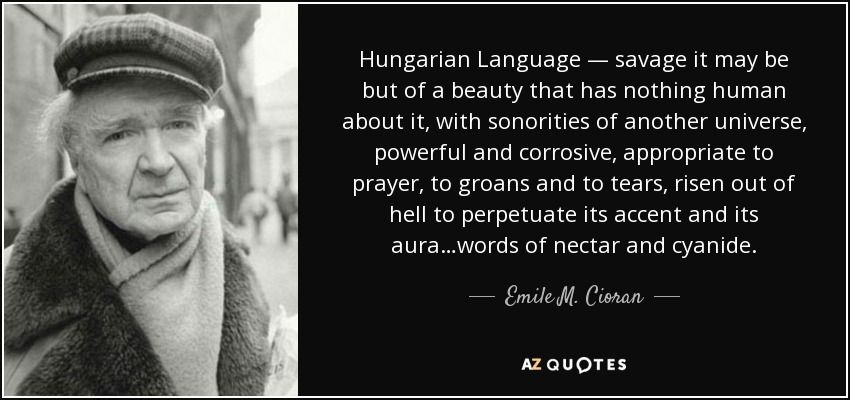
If you are experiencing a mental health crisis, text or call 988.
If this is a medical emergency or if there is immediate danger of harm, call 911 and explain that you need support for a mental health crisis.
What to do if the future seems hopeless
March 23 Motivation
There are two easy ways to change things.
Arthur S. Brooks
Sociologist, professor at Harvard Business School, former president of the American Enterprise Institute.
The human brain is designed in such a way that when we think, we regularly "live" in the future. Sometimes this becomes a serious problem.
We humans are beings who think in perspectives. So argue psychologists and philosophers - for example, Martin Seligman, Peter Railton, Roy Baumeister and Chandra Sripada in the book "Homo Prospectus". nine0003
Seligman says that about 30-50% of the thoughts that arise in the human head during the day are worries, hopes, worries about what will happen in a week, a month, a year or 10 years. No other creatures look ahead so often and far. Why, only we and some species of primates do it.
No other creatures look ahead so often and far. Why, only we and some species of primates do it.
The future-thinking monkey inside of us wants to see a lot of fruits in the short term and the opportunity to get them. The best way to upset her is to let her know that the tree will be empty or the fruit will hang too high. nine0003
Since we spend a lot of time mentally in the future, we are happy to think that it is full of pleasant possibilities that we can control. And vice versa: an almost perfect cocktail for suffering is to believe that the future is hopeless and we have no leverage to change it.
Why are thoughts about a hopeless future dangerous? They laugh at him. They create funny pessimistic characters like Eeyore. But in real life, this pessimism is not at all a reason for laughter. nine0003
Research shows that feelings of hopelessness are strongly associated with suicide risk.
Pessimistic young people, having reached middle age, suffer disproportionately from various health problems.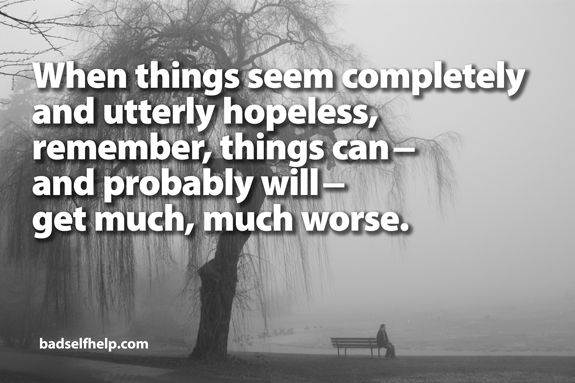
The same applies to the subjective feeling that you are not in control of your life. When, due to financial losses or other hardships, it begins to seem to a person that he cannot change anything, this significantly affects health - both mental (up to the development of depression) and physical. nine0003
In short, when your inner monkey begins to see an empty tree in the future, it becomes ill. It is even more unpleasant if there are many monkeys on this tree at once and hopelessness covers them all. The collective sense of powerlessness is overwhelming, making each individual feel even worse.
What to do if the future looks hopeless
It seems that all we can do in a situation like this is sit and wait. Vaccines. collective immunity. Elections. Basically, anything that might change our perspective. Meanwhile, pessimism will grow. nine0003
However, we are not helpless. Yes, each of us can do little to speed up the emergence of vaccines or, for example, to influence the political structure of the state as a whole. But we can change our way of thinking so that hopelessness does not take over and break us, at the same time ruining our health.
But we can change our way of thinking so that hopelessness does not take over and break us, at the same time ruining our health.
Just two steps are enough for this.
1. Challenge the apparent futility
Pessimism is actually a mirror that distorts reality. We expect the worst and see in everything a progressive and inexorable movement towards this scenario. As a result, despair grows. nine0003
Seligman and other psychologists recommend dealing with this with the so-called argument technique. It consists in the following.
Imagine the worst version of the future you expect. And find logical inconsistencies, flaws in it - challenge it.
This is to prove to yourself that the future is multivariate, and a bad scenario may be less realistic than a good one.
Here's my example: I teach at a university and love working with students in the classroom. It fills me with energy, brings joy. However, due to the pandemic, all classes had to be transferred online. At first it was unusual and interesting. Then it started to scare. nine0003
At first it was unusual and interesting. Then it started to scare. nine0003
A year has passed. The other day I found myself brooding over the fact that I would probably never again return to that open, student-filled auditorium that I loved so much. That having to lecture from home, through a computer screen, would be my new normal. That pessimism is fueled by headlines like “How Coronavirus Will Change Universities Forever.”
However, in fact, the feeling of hopelessness in my case is completely unjustified. And I challenged it by analyzing the facts. For example, he took into account the vaccination that had begun. I read the forecasts, according to which the pandemic will end by the end of 2021. And I came to the conclusion: there is a high probability that classes in the classroom will resume within a year. So my troubles are certainly tiresome, but temporary. nine0003
Most likely, your future is also brighter and brighter than the picture that you draw for yourself in gloomy reflections. So challenge your own pessimism. Only not thoughtless optimism, but facts.
So challenge your own pessimism. Only not thoughtless optimism, but facts.
2. Change your goals to see opportunities within your limitations
When I was 30, I made a living as an analyst at a large think tank in California. And when I had problems, the boss said: "Turn restrictions into solutions."
He suggested starting the study of each problem by enumerating how and in what way it limits me. And then, instead of sadly accepting this as an inevitable given, figure out how you can use the restrictions to your advantage. nine0003
A simple example. During quarantine, I often heard complaints about remote work. People said that it is impossible to work effectively from home when children and family are nearby. Which exhausts the need to constantly cook. Lack of live communication with colleagues. And because of all this, it is not possible to be as productive as before.
Yes, there are indeed restrictions. But look at them as opportunities.
To do this, it is enough to adjust your own definition of productivity.
Many people have a distorted idea of a productive life, associating it exclusively with work. Take the Americans: they work more than they need to indiscriminately.
For example, a 2018 survey by the United States Travel Association found that 55% of workers deliberately cut their paid vacation time. And 54% of those who did go on a good rest, reported that they feel guilty.
Meanwhile, productivity can and should touch other spheres of life as well. For example, since you have the opportunity to cook more often, why not change your eating habits. nine0003
And since you can spend more time with your family, try to improve your relationship with your children and partner. Or use the hour you used to spend commuting to the office to learn English. All this will be a story about productivity.
I will not tire of repeating: the healthiest way to live in difficult, seemingly hopeless times is to see opportunities in them. And then use them to become better and stronger.
And then use them to become better and stronger.
Even if your pessimistic inner monkey turns out to be right and the looming tree ahead doesn't bear fruit, at least you'll meet this unpleasant future in better shape. nine0003
Read also 🧐
- How to stop doubting your choice and not looking for the perfect solution all the time
- Why is the race for self-development dangerous and how to get out of it 900
9 Why do we depend on someone else's approval and what to do if no one praises
What is a feeling of despair in a person, an explanation of the state of despair
According to studies, despair begins to be felt especially often and sharply when people enter the period of early adulthood - 30-40 years. This harmful feeling causes problems with mental and somatic health. nine0003
The state of despair can be seen as a symptom of mental disorders, or it can be a situational emotion that occurs in response to negative life events. An oppressive sense of hopelessness is found in diseases such as depression, anxiety disorders, bipolar disorder, eating disorders, post-traumatic stress disorder, various types of addictions, and more. Despair is not always associated with a psychiatric diagnosis, but, regardless of the cause, this feeling has a devastating effect on life and health. Negative emotions threaten not only the well-being and mental stability of a person. They can also rob you of the motivation you need to complete daily tasks, connect with people, or even seek help. nine0003
An oppressive sense of hopelessness is found in diseases such as depression, anxiety disorders, bipolar disorder, eating disorders, post-traumatic stress disorder, various types of addictions, and more. Despair is not always associated with a psychiatric diagnosis, but, regardless of the cause, this feeling has a devastating effect on life and health. Negative emotions threaten not only the well-being and mental stability of a person. They can also rob you of the motivation you need to complete daily tasks, connect with people, or even seek help. nine0003
People often experience feelings of despair after tragic events. This is usually the main emotion that arises in response to a sudden traumatic event. In this case, this is a normal and understandable reaction, but it can lead to rash decisions in critical situations, or it can drag on and poison life for a long time. Fortunately, it is in our power to dispel this pernicious feeling. We can learn to cope with any loss, move on, change and continue our lives if we do not ignore the problematic situation and turn for help.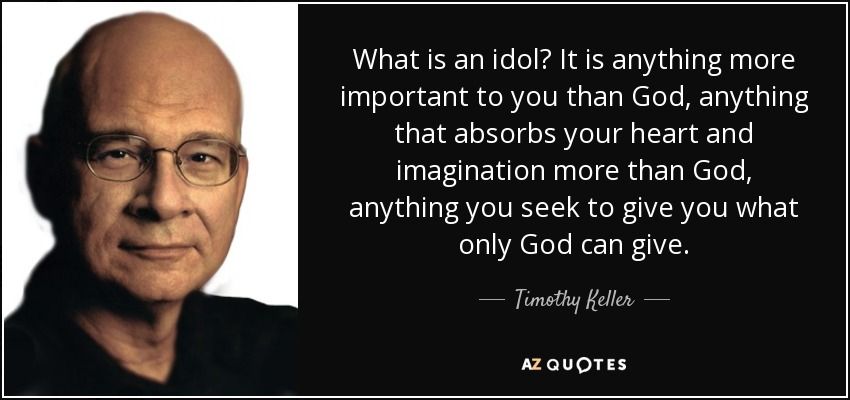 nine0003
nine0003
What is despair
Everyone experiences despair at difficult times in their lives. We may despair from time to time about our work, marriage, sex life, finances, world events, and more. But usually this despair dissipates over time, and life goes on. At least until the next crisis.
But sometimes despair does not go away, but, on the contrary, deepens and begins to significantly affect behavior, flowing into a chronic problem. When this feeling reduces the quality of life, prevents you from moving towards goals, dreams and desires, then it becomes pathological or clinical despair. nine0003
Despair is characterized by a lack of hope, optimism, and passion for life. This feeling can be described as a mixture of mental anguish, despondency and disappointment, which lead to the loss of the meaning of one's existence. Therefore, in despair, the explanation that life goes on and all problems can be solved may not have the desired effect if there was no preliminary psychotherapeutic preparation.
Despair is a strong emotion that negatively affects how a person perceives himself, other people, personal circumstances and the world in general. Often, hopelessness guides a person's behavior, because of it there is a negative attitude towards the future and the loss of any motivation. To despair means to stop appreciating even those things and events that were once very important. Emotions are often associated with a lack of inspiration, as well as feelings of powerlessness, helplessness, abandonment, oppression, and social isolation. nine0003
People who know what despair is can say the following about themselves:
- My situation will never get better
- I have no future
- Nobody and nothing can help me
- I feel like I've given up
- It's too late to change anything
- I have no hope for a bright future
- I will never be happy again
Unfortunately, it is not always possible to contact a specialist immediately after a traumatic event. But if a person feels that time is running out, and the feeling of despair does not go away, then it is necessary to seek professional help. The therapist will not only help you find the cause of despair and eliminate the feeling of hopelessness, but also teach you how to cope with life's difficulties and think rationally in critical situations. This will help to avoid rash actions that will negatively affect life for many years to come. There is no need to visit a psychotherapist whenever there is a feeling of hopelessness. A competent specialist will teach you how to be persistent and independently cope with these situations in the future. Therapy will make it clear that no matter how hopeless things seem now, there is always hope and meaning to move on. nine0003
But if a person feels that time is running out, and the feeling of despair does not go away, then it is necessary to seek professional help. The therapist will not only help you find the cause of despair and eliminate the feeling of hopelessness, but also teach you how to cope with life's difficulties and think rationally in critical situations. This will help to avoid rash actions that will negatively affect life for many years to come. There is no need to visit a psychotherapist whenever there is a feeling of hopelessness. A competent specialist will teach you how to be persistent and independently cope with these situations in the future. Therapy will make it clear that no matter how hopeless things seem now, there is always hope and meaning to move on. nine0003
Suppressed motivation, lack of interest, negative thoughts about the future, and low self-esteem are all common issues that accompany feelings of desperation and that must be dealt with in the therapist's office.
One of the effective psychotherapeutic approaches that are used for this problem is cognitive therapy. It is aimed at working out the negative thoughts and attitudes of the patient. Because the cognitive approach requires people undergoing treatment to carefully consider the validity of their assumptions, a person who is discouraged may initially be resistant to this approach. However, an experienced specialist removes these psychological barriers, helping the patient to look at life from a different angle. nine0003
Numerous studies show that psychotherapy often helps people who have fallen into despair find hope and achieve lasting mental health.
If necessary, drug therapy can be carried out, which includes modern antidepressants, mild sleeping pills and other drugs, the choice of which depends on the situation.
What despair means for children
Despair and depression can occur at any age: not only in adulthood or old age, but also in adolescence or even early childhood.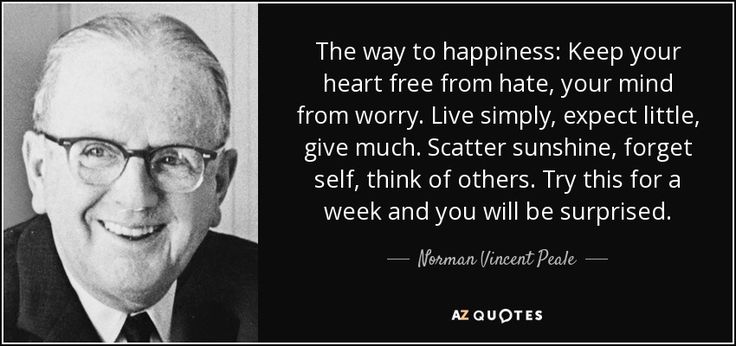 The psyche of children is extremely unstable and vulnerable. As such, children and teens are usually more susceptible to trauma than adults, but with the right support and reassurance, they can also recover faster. nine0003
The psyche of children is extremely unstable and vulnerable. As such, children and teens are usually more susceptible to trauma than adults, but with the right support and reassurance, they can also recover faster. nine0003
The strong, confusing, and frightening emotions that follow traumatic events undermine a child's sense of security, causing them to feel helpless and vulnerable.
Trauma and despair - what does it mean for children and how to recognize them? Manifestations depend on the situation and the age of the child. Among them:
- Unfounded fears
- Frequent crying and screaming
- A large number of aimless movements or, conversely, reduced motor activity
- Return to behaviors that are characteristic of an earlier age, such as thumb sucking or bedwetting
- Loss of interest in friends, family and former hobbies
- Sleep problems
- Irritability
- Poor school performance
- Complaints of physical ailment
- Feelings of depression, apathy or guilt
Ignoring the problem can lead to irreversible consequences: the child will stop living a full life, may start studying, lose friends and interest in life for many years.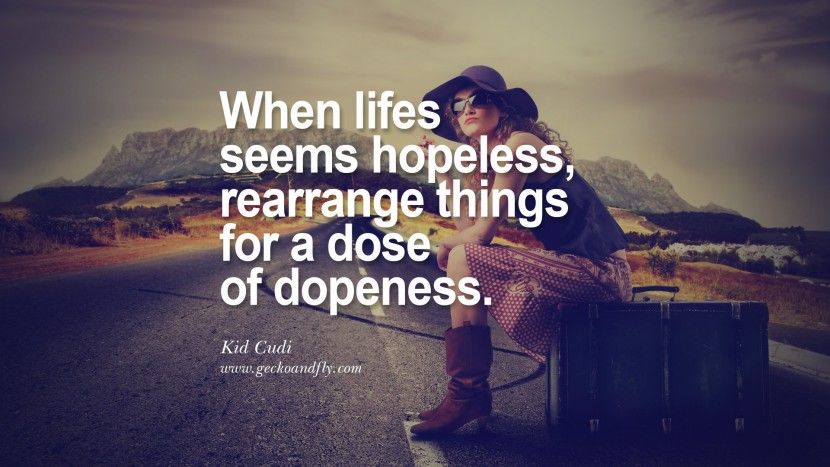 Deep despair often degenerates into acts of violence: either against oneself or against others. In the worst cases, mental illness develops, various types of addictions and even suicidal behavior occur. nine0003
Deep despair often degenerates into acts of violence: either against oneself or against others. In the worst cases, mental illness develops, various types of addictions and even suicidal behavior occur. nine0003
If a child has fallen into despair so much that this feeling for a long time prevents him from functioning at school or at home, this means that it is no longer possible to postpone the appeal to a psychotherapist.
Signs to watch out for parents:
- Despair persists for 6 weeks or more
- Academic and performance problems
- The child often complains of headaches, nausea, abdominal pain or sleep disturbance
- Child finds it increasingly difficult to communicate with friends and family
- Child or adolescent expresses suicidal thoughts
- The child became withdrawn, anxious
- Outbursts of rage and aggression that never happened before
- Bad mood, sadness, tearfulness
The more parents know about the causes, symptoms, and treatment options for their child's depression, the faster their recovery will be.